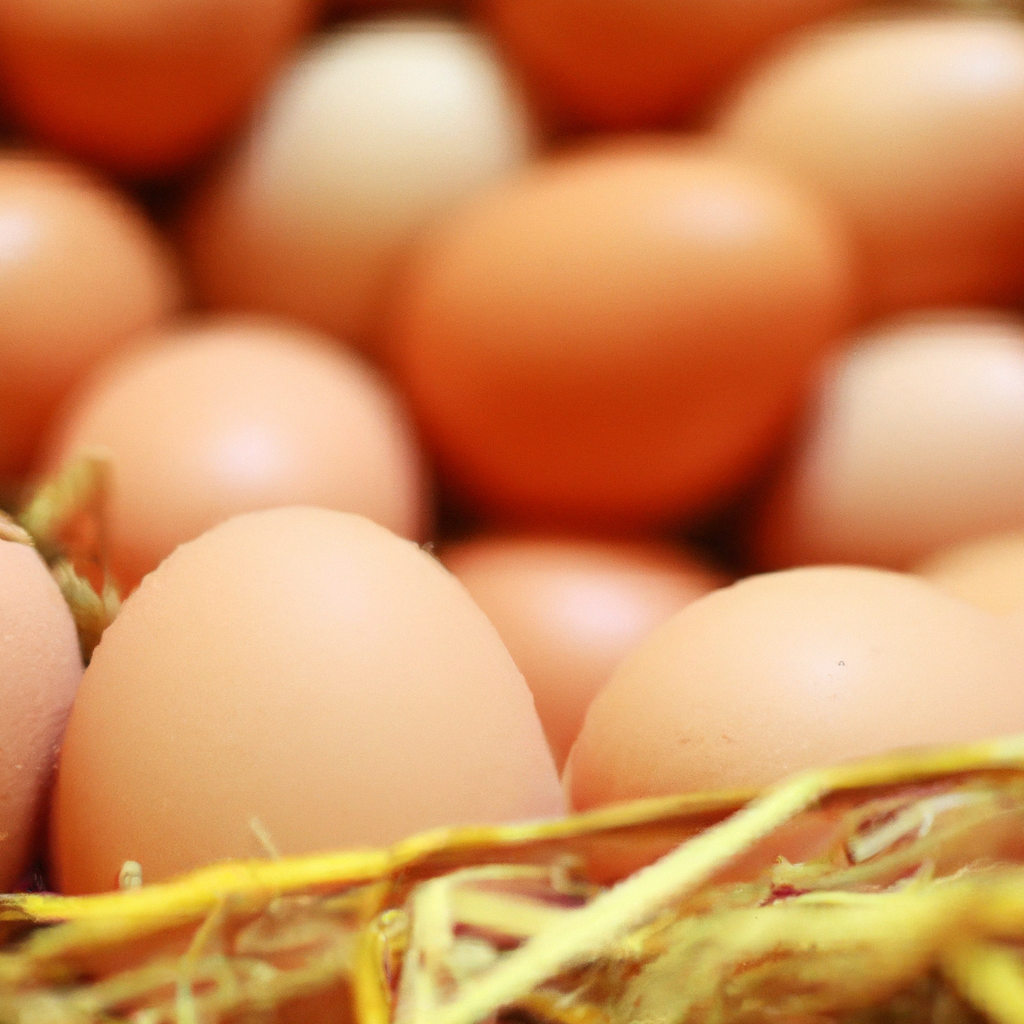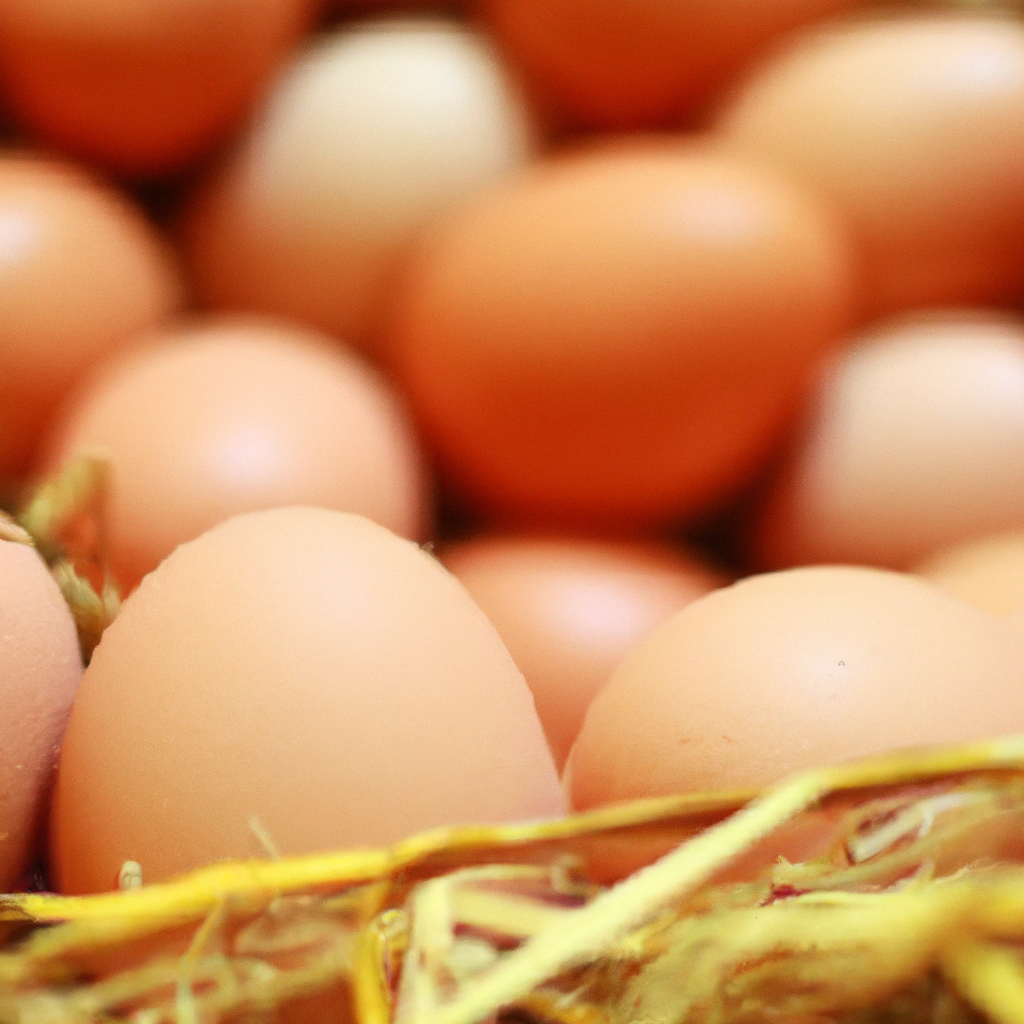
Are you looking to boost egg production from your chickens? If so, you might be wondering how to encourage them to lay more eggs. Well, fret not, because we have some great tips and tricks to help you achieve just that. From providing the right nutrition to creating a comfortable environment, there are several ways to incentivize your feathered friends to lay more eggs. So, read on to discover simple and effective methods that will have your chickens happily laying more eggs in no time!

Diet and Nutrition
A balanced diet
When it comes to encouraging chickens to lay more eggs, providing them with a balanced diet is crucial. A well-rounded diet ensures that chickens receive all the necessary nutrients to support their egg-laying capabilities. A balanced diet for chickens typically includes a combination of grains, seeds, fruits, vegetables, and protein sources such as insects or commercial feed.
Protein-rich feed
Protein plays a vital role in egg production, as it provides the necessary building blocks for the development of eggs. Including protein-rich feed in your chickens’ diet can significantly help stimulate egg-laying. You can supplement their diet with soybean meal, fish meal, or even dried mealworms to boost their protein intake.
Calcium supplements
Calcium is an essential mineral for egg production, as it contributes to the formation of strong eggshells. If your chickens are not receiving enough calcium through their regular diet, you can provide them with calcium supplements such as crushed oyster shells or limestone grit. These supplements ensure that the hens have sufficient calcium to produce eggs with sturdy shells.
Mineral supplementation
Apart from calcium, other minerals like iron, zinc, and magnesium are also crucial for overall health and egg production in chickens. Providing a mineral supplement or ensuring they have access to a mineral-rich environment can help support optimal egg production.
Enough Light
Natural lighting
Proper lighting is essential for stimulating egg production in chickens. Natural lighting plays a significant role in maintaining their hormonal balance and regulating their internal cycles. Ensure that the coop or nesting area has ample natural light during the daytime. Positioning the coop in an area that receives plenty of sunlight can also benefit the hens’ overall well-being.
Artificial lighting
In cases where natural lighting is limited, artificial lighting can be used to supplement the chickens’ exposure to light. The use of artificial lights can help extend the daylight period, simulating longer days and promoting increased egg-laying. Care should be taken to provide a consistent and suitable light source, as sudden changes or fluctuations in lighting can disrupt their egg-laying cycle.

Comfortable Environment
Clean and cozy nests
Creating clean and cozy nests for your chickens is essential for encouraging them to lay eggs. Providing a comfortable and safe space for them to lay their eggs promotes a sense of security and encourages more frequent egg-laying. Regularly clean and replenish nesting materials like straw, wood shavings, or nesting pads to ensure a clean and inviting environment.
Adequate ventilation
Proper ventilation in the chicken coop is crucial for maintaining a healthy environment. Good airflow helps remove excess moisture, ammonia, and other contaminants that can negatively affect egg production and overall chicken health. Ensure that the coop has well-placed vents or windows to facilitate proper air circulation and minimize the risk of respiratory issues.
Proper temperature control
Maintaining a consistent and comfortable temperature inside the coop is vital for egg production. Extreme temperatures, whether too hot or too cold, can disrupt the hens’ egg-laying patterns. Ensure that the coop is adequately insulated and ventilated to provide a temperature range that is suitable for the chickens’ well-being.
Sufficient space
Chickens require adequate space to move and roost comfortably. Overcrowding can lead to stress, aggression, and reduced egg production. Providing a sufficient area for your flock allows them to exhibit natural behaviors, such as scratching, dust bathing, and perching, which can positively influence egg-laying.
Routine and Stress Reduction
Establish a routine
Chickens thrive on routine, and establishing a consistent daily routine can help minimize stress and encourage regular egg-laying. Ensure that feeding, watering, and egg collection are done at the same time each day. Consistency in routine helps the chickens feel secure, as they know what to expect, leading to reduced stress levels and increased egg production.
Minimize stress factors
Stress can have a detrimental effect on egg production in chickens. Minimizing stress factors in their environment is essential for maintaining optimal egg-laying. Avoid sudden changes in diet, temperature, or lighting, as well as introducing new flock members abruptly. Providing a calm and quiet environment and avoiding overcrowding can significantly reduce stress levels and improve egg production.

Breeding and Genetics
Select productive breeds
When aiming for high egg production, selecting breeds known for their productivity is crucial. Certain heritage or commercial chicken breeds, such as Leghorns or Rhode Island Reds, are renowned for their excellent egg-laying abilities. Research various breeds and consider their specific traits and egg-laying potential before selecting chickens for your flock.
Consider hybrid chickens
Hybrid chickens, often the result of crossbreeding specific breeds, are known for their high egg-laying performance. These hybrid layers are specifically bred for maximum productivity and can provide a reliable source of eggs. Consulting with reputable breeders or hatcheries can help you identify suitable hybrid options for your flock.
Avoid inbreeding
Inbreeding can negatively impact egg production and the overall health of the chicken flock. When breeding chickens, it is essential to introduce new genetics periodically to maintain vigor and prevent potential genetic issues. Avoid mating closely related birds, and consider bringing in new birds from reputable sources to diversify the gene pool.
Health and Hygiene
Regular health check-ups
Maintaining the health of your chickens is crucial for optimal egg production. Regular health check-ups by a veterinarian or experienced poultry keeper can help detect and prevent any potential health issues that could hinder egg-laying. Vaccinations, deworming, and preventative measures against common poultry diseases should be prioritized.
Effective parasite control
External and internal parasites can significantly affect the well-being and egg production of chickens. Implementing effective parasite control measures, such as providing dust baths or using approved anti-parasitic treatments, helps prevent infestations and promotes better egg-laying.
Clean water supply
Access to clean and fresh water is vital for chicken health and egg production. Ensure that your birds have a readily available source of clean water at all times. Regularly clean and refill water containers to prevent the spread of bacteria and contaminants that can adversely affect their health and egg-laying capabilities.
Sanitation practices
Maintaining a clean and hygienic environment is imperative for healthy chickens and optimal egg production. Regularly clean the coop, remove soiled bedding, and dispose of waste properly to minimize the risk of bacterial or fungal infections. Good sanitation practices, such as regular disinfection and rigorous biosecurity measures, help create a healthy and disease-free environment for your flock.

Optimal Egg Collection
Frequent collection
Regular and timely egg collection is essential for encouraging hens to lay more eggs. Leaving eggs in the nesting boxes for an extended period can lead to broodiness or a decrease in egg production. Collect eggs at least once or twice a day to prevent the hens from becoming broody and to maintain their continuous production.
Proper handling and storage
Handle collected eggs with care to prevent damage to the shells and contamination. Avoid washing eggs unless absolutely necessary, as the protective bloom on the shells helps maintain their freshness. Store eggs in a cool and dry place, with the pointed end down, to preserve their quality and increase their shelf life.
Egg-Laying Stimulants
Calcium-rich extras
Supplementing your chickens’ diet with calcium-rich extras can help stimulate egg production. Offering crushed eggshells, oyster shell grit, or even feeding them leafy greens rich in calcium, such as kale or spinach, promotes optimal calcium intake. Calcium is essential for the formation of strong eggshells and encourages consistent egg-laying.
Adding artificial nests
Providing artificial nesting sites can help stimulate egg-laying in chickens. The inclusion of fake or additional nesting areas can attract hens looking for suitable places to lay their eggs. These artificial nests should be designed with features that mimic natural nesting areas to ensure they are appealing to the chickens.
Age and Retirement
Take advantage of early laying
Chickens typically lay the most eggs during their first year of life. During this time, feed them a nutrient-rich diet and ensure they receive proper care to encourage high egg production. Pay attention to their health and provide optimal conditions for egg-laying during their prime laying period.
Knowing when to retire hens
As chickens age, their egg production naturally declines. It is essential to monitor individual hens and assess their productivity. Once a hen’s egg-laying rate significantly decreases or stops altogether, consider retiring her from egg production and transitioning her into a more appropriate role, such as a companion chicken or a free-range pet.
Patience and Observation
Allow time for adjustment
Sometimes, when introducing new chickens or making changes to their environment, it takes time for them to adjust. Be patient and give your flock time to settle in and adapt to any modifications you have made. Stress caused by abrupt changes can temporarily affect egg production, but with patience and consistency, the hens will likely return to their regular laying routine.
Monitor individual performance
Keeping track of each hen’s individual egg-laying performance can help identify any issues or changes in production. Regularly monitor and record the number of eggs laid by each chicken to establish a baseline. Any significant deviations from their established patterns can indicate potential concerns that require attention, such as health issues or stress factors.
By implementing these strategies and ensuring your chickens have a healthy and comfortable environment, you can encourage them to lay more eggs. Remember to prioritize their diet, provide adequate lighting, create a comfortable living space, minimize stress factors, consider breeding and genetics, maintain their health and hygiene, optimize egg collection, consider egg-laying stimulants, understand the effects of age and retirement, and be patient while observing their performance. With care and attention to their needs, your chickens will likely reward you with a bountiful supply of fresh and nutritious eggs.







